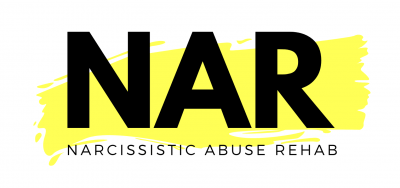Ending a relationship with a narcissistic partner is a complex process that poses major challenges for the survivor. These are relationships characterized by intermittent reinforcement schedules. In other words, the manipulator is hot one moment and cold the next. This behavior can induce a state of anxiety in an otherwise secure person. Overtime, the emotional state of the recipient of the abuse can become chronically dysregulated and develop a painfully distorted sense of self. As daunting as it may seem, healing is possible.
Here are seven transformative strategies for rebuilding post-narcissistic relationships, fostering growth, resilience, and renewed empowerment.
Recognizing the Signs of Narcissistic Abuse
Sandra L. Brown, founder of the Institute for Relational Harm Reduction, estimates that 1 in 25 Americans has a personality disorder. This amounts to over 12 million people. According her research over 60 million people may experience narcissistic abuse at some point in their lives.
For this reason, it is import to learn the signs of this often subtle type of relational aggression. Such relationships are often characterized by manipulation, gaslighting, and a pervasive sense of control. Recognizing these behaviors is the first step toward breaking free from the toxic cycle.
Look for consistent patterns of belittlement, excessive need for admiration, and low empathize. Emotional and psychological abuse may manifest subtly, leaving victims questioning their reality. Understanding these signs empowers individuals to detach from the toxicity and start their healing journey.
Breaking Free: Ending the Narcissistic Relationship
According to Verywell Mind, the impact of narcissistic abuse varies based on the duration of such relationships. Effects can range from mild to severe, with some survivors recovering while others may endure lasting damage. Leaving such a connection can be an arduous and emotionally charged journey.
The manipulative tactics employed by narcissists often leave their partners feeling trapped, confused, and unsure of how to escape. Understand that liberation is attainable, and you are worthy of regaining control over your life.
Narcissistic relationships often follow a predictable pattern characterized by idealization, devaluation, and discard. During the idealization phase, the narcissist inundates their partner with affection and admiration, establishing a profound sense of connection and euphoria. It is followed by devaluation, where the narcissist begins to chip away at their partner’s self-esteem through criticism, belittlement, and emotional manipulation.
Ultimately, the narcissist might choose to completely discard their partner, leaving them with a sense of abandonment and heartbreak.
Ending such toxic entanglements requires resilience and a commitment to self-preservation. It is crucial to surround oneself with a supportive network to navigate the challenges of disentanglement.
Self-Reflection and Empowerment
Amidst post-narcissistic healing, self-reflection becomes a potent guide, leading individuals to a profound comprehension of their inner selves. This introspective journey allows survivors to reclaim their narratives, identify vulnerabilities, and cultivate self-awareness. Self-reflection liberates from an abusive partner’s distorted narrative, initiating the vital process of rebuilding one’s sense of identity.
Empowerment, intertwined with self-reflection, serves as a beacon of strength. It involves making deliberate choices to regain control over one’s life. The union of self-reflection and empowerment creates a transformative alliance, empowering survivors to break free from victimhood and reclaim agency.
Rebuilding Social Connections
Isolation often characterizes the aftermath of a narcissistic relationship. Isolation is a major reason for the development of anxiety and depression. It makes the process of rebuilding social connections a crucial aspect of healing. According to the CDC, fostering social connections enhances recovery from stress, anxiety, and depression. Individuals with robust social bonds exhibit a 50% higher likelihood of survival compared to those with fewer connections.
Reconnecting with friends and family and even fostering new relationships can provide a supportive network essential for recovery. Survivors, in the process of broadening their social connections, discover comfort and resilience through shared experiences. This sense of belonging becomes pivotal in their journey to reclaim a fulfilling and interconnected life.
Seeking Professional Recovery Support
Healing the wounds of a narcissistic relationship can be a challenging journey. While self-reflection and social connection are crucial pillars of healing, sometimes the path requires the support of a professional guide. This is where counseling and therapy can become your guiding light, illuminating the way toward emotional well-being and self-discovery.
When seeking support after abuse, finding the right guidance is pivotal. Narcissistic Abuse Rehab specializes in helping people heal from toxic relationships. Visit our coaching page to book a free 15-minute consultation.
Other treatment options can include working with mental health professionals who have undergone MSN-FNP online programs as this training can bridge the gap between medical knowledge and compassionate care.
Legal and Practical Considerations
Navigating the aftermath of a narcissistic relationship involves not only emotional healing but also addressing crucial legal and practical considerations. Understanding your rights and the potential legal challenges is paramount in reclaiming control over your life. Navigating legal aspects, including restraining orders, divorce, and child custody battles, necessitates seeking legal advice for guidance through complexities.
Practical considerations encompass managing financial affairs, disentangling shared assets, and securing personal safety. Acknowledging legal implications empowers survivors, enabling proactive measures for a smoother transition to a future marked by autonomy and well-being.
Self-Care and Emotional Healing
In the profound journey of rebuilding life post-narcissistic relationships, prioritizing self-care becomes a cornerstone for emotional healing. Self-care is not merely a luxury but a crucial investment in reclaiming well-being. Survivors cultivate resilience and inner strength through practices like mindfulness, therapeutic activities, setting healthy boundaries, and fostering self-nurturance.
Emotional healing is a delicate process that necessitates self-compassion and understanding. By acknowledging the emotional wounds inflicted during such relationships, survivors can begin to cultivate a sense of self-love and acceptance. Highlighting the importance of a self-care routine to liberate oneself from the past shadows, fostering a journey of empowerment and self-discovery.
A Journey of Resilience and Renewal
In the intricate aftermath of a narcissistic relationship, the path to healing unfolds as a journey of resilience and renewal. Each facet explored in this guide contributes to the comprehensive process of reestablishing one’s life.
The conclusion resonates with hope and empowerment, acknowledging the inherent strength of those navigating the challenging path to healing. Survivors, incorporating these seven strategies, reclaim control and nurture a future characterized by resilience, self-love, and renewed purpose. The journey may be challenging, but it is a journey toward a life authentically and unapologetically one’s own.






